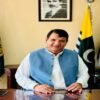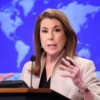NEW DELHI/MUZAFFARABAD: India’s foreign minister said he has told Secretary of State Marco Rubio that perpetrators of the deadly attack in Kashmir last week should be brought to justice, as the U.S. sought to calm tensions between nuclear-armed India and Pakistan.
The U.S. said Rubio discussed the strained ties between the two neighbours in separate telephone calls on Wednesday, urging them to work with each other to “de-escalate tensions.”
He expressed support to India in combating extremism and urged Pakistan to cooperate in probing the attack at a tourist spot that killed 26 people, the State Department said.
Indian Foreign Minister Subrahmanyam Jaishankar said in a post on X that he told Rubio “perpetrators, backers and planners” of the April 22 attack “must be brought to justice”.
Pakistan’s Prime Minister Shehbaz Sharif urged the U.S. to press India to “dial down the rhetoric and act responsibly”, and Army Chief General Asim Munir said Pakistan was committed to peace but would safeguard its national interests.
“Let there be no ambiguity: any military misadventure by India will be met with a swift, resolute, and notch-up response,” he said while witnessing a field-training exercise of the army’s Mangla Corps, based in Pakistani Kashmir.
Islamist assailants attacked a meadow teeming with tourists in Kashmir’s Pahalgam area last week, segregated men, asked their names and shot Hindus at close range, officials and survivors said. At least 26 people, mostly tourists, were killed.
India has identified the three attackers, including two Pakistani nationals, as “terrorists” waging a violent revolt in Muslim-majority Kashmir. Islamabad has denied any role and called for a neutral investigation.
Earlier this week, Indian Prime Minister Narendra Modi told his military chiefs that they had the freedom to decide the country’s response to the attack, a government source said.
Pakistan says it has “credible intelligence” that India intends to launch military action soon.
Muslim-majority Kashmir is claimed in full by both Hindu-majority India and Islamic Pakistan, although each controls only a part of the Himalayan region. They have fought two wars over Kashmir and New Delhi accuses Pakistan of backing an uprising in Indian Kashmir that started in 1989 but has now waned.
Pakistan says it only offers diplomatic and moral support to a Kashmiri demand for self-determination.
SEMINARIES CLOSED
The old rivals have taken measures against each other since the Pahalgam attack, with India putting a critical river water sharing treaty in abeyance. Both have closed their airspace to each other’s airlines.
Troops from the two sides have exchanged small arms fire across their frontier for the past seven nights, but no casualties have been reported so far, India has said.
Pakistan did not respond to a request for comment.
India’s navy issued warnings for several firing drills in the Arabian Sea off the coasts of Maharashtra and Gujarat states. Gujarat shares a border with Pakistan.
The government of Pakistan-administered Kashmir has closed all religious seminaries in the region for 10 days, officials said, citing fears they would be targeted by Indian strikes.
At a check-post in Pakistan-administered Kashmir, a Reuters correspondent saw tourist vehicles being turned back on the road to the Neelum valley, a picturesque area along the de facto border amid fears of an Indian incursion.
“Given some indications, we have not only stopped fresh travellers but we are also safely evacuating those who are already here,” said Nadeem Ahmed Janjua, a local official.
The head of the Pakistan-administered Kashmir called for international mediation and said his administration was preparing a humanitarian response in case of further escalation.
On Thursday, Indian Defence Minister Rajnath Singh spoke to U.S. Defense Secretary Pete Hegseth by phone, and told him that “Pakistan has a history of supporting, training and funding terrorist organisations,” Singh’s office posted on X.
“Secretary Hegseth said that the U.S. stands in solidarity with India and supports India’s right to defend itself,” it said.
The United Nations has asked both countries to avoid confrontation. China, a key player in the region, had earlier this week urged them to exercise restraint.
Reporting by Shivam Patel and Tanvi Mehta in New Delhi, Tariq Maqbool in Muzaffarabad; additional reporting by Gibran Peshimam in Islamabad; Editing by Raju Gopalakrishnan, YP Rajesh and Ros Russell



